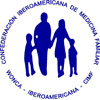Food habits adequacy of hypertensive and diabetics patients
Resumo
Introduction: The study describes the healthy food consumption in hypertensive and diabetic people and classifies the adequacy of habits according to the Brazilian Ministry of Health’s Food Guide.
Objective: To describe the adequacy of food consuption by diabetics and hypertensive patients in a Primary Health Care setting.
Methodology or experience description: A cross-sectional analysis of data from the baseline in 2011 was conducted with a simple random sample of hypertensive and diabetic adults cared for in a primary health service, who responded to a baseline questionnaire from a longitudinal study.
Results: A total of 2482 people were analyzed; 66.5% were hypertensive only, 6.5% were diabetic only and 27.1% had hypertension and diabetes. Among the participants, 76.6% did not have adequate food habits. Were observed a high intake of fats, sugar and salt, and a low intake of fibers. The prevalence of an inadequate food habit was higher among those who were hypertensive only.
Conclusions or Hypothesis: Considering a chronic condition, improving their nutrition should be a goal of treatment for disease control and prevention of damage.The difference between the groups suggests the importance of analysis and management strategies specific to each stratus.
Palavras-chave
Texto completo:
PDF (English)Apontamentos
- Não há apontamentos.
Este periódico é de responsabilidade das associações:
Apoio institucional:







